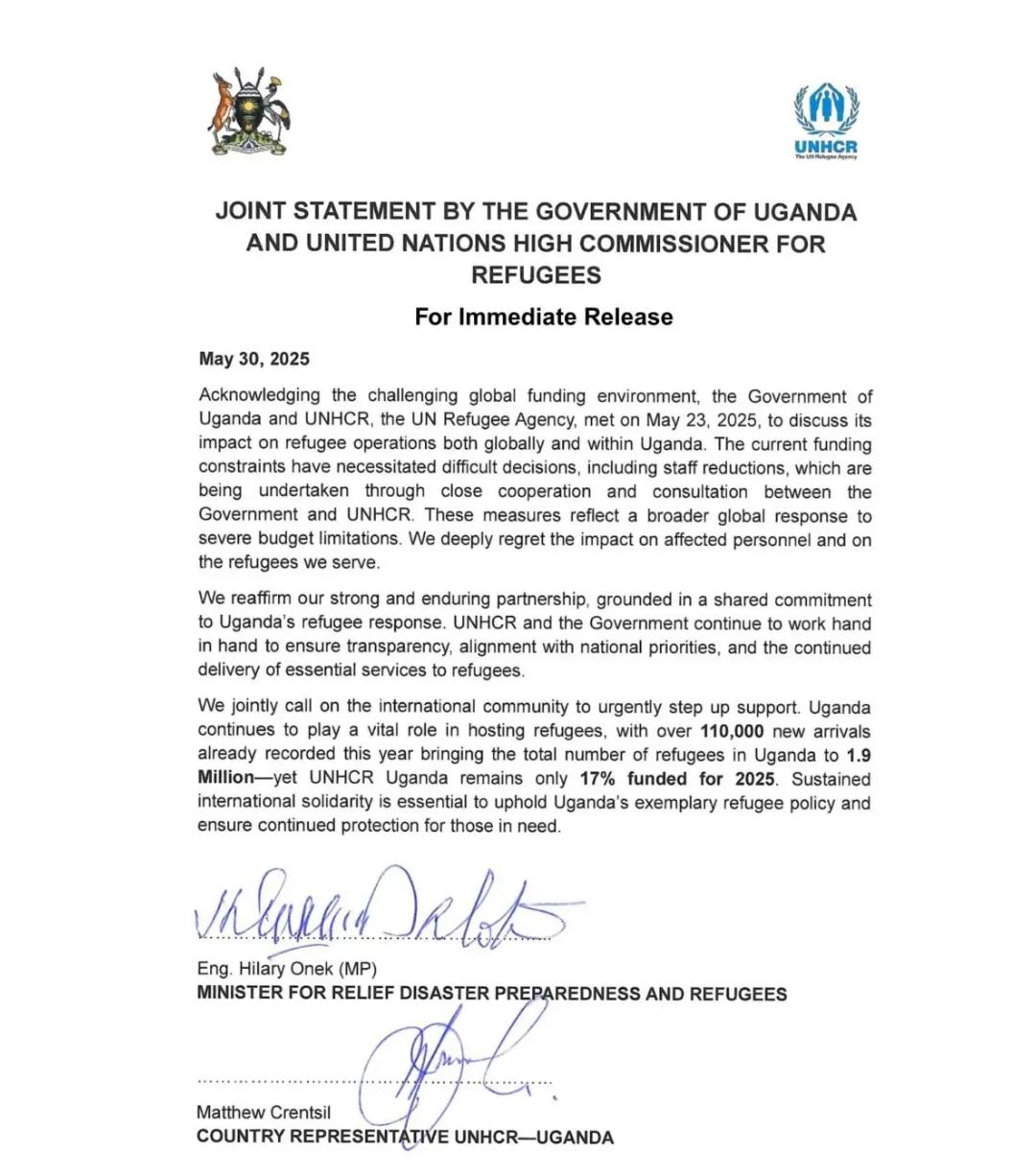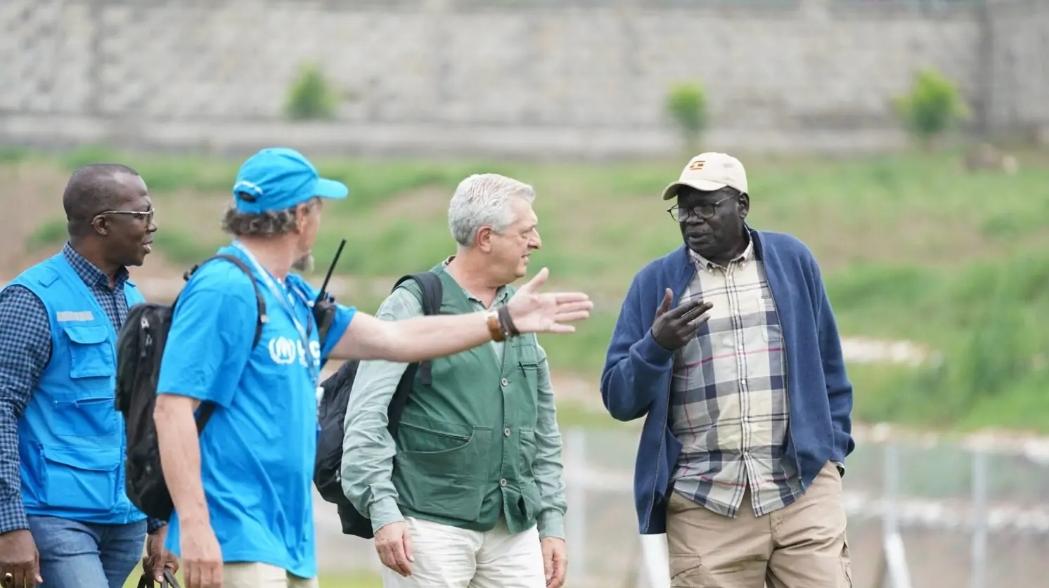Uganda’s refugee operations have encountered a new setback, as plans are underway to reduce the number of staff managing refugee affairs due to significant funding shortfalls.
This development arises amid mounting financial constraints that have placed the country in a challenging position, necessitating critical and urgent decisions.
In a joint statement released yesterday, the United Nations High Commissioner for Refugees (UNHCR) and the Government of Uganda announced the outcomes of a high-level meeting held on May 23, 2025.

The meeting focused on the effects of a strained global funding environment on refugee operations worldwide, including within Uganda.
As a result, a decision was made to reduce staffing levels as part of broader efforts to navigate the ongoing financial crisis.
“The current funding constraints have necessitated difficult decisions, including staff reductions, which are being carried out in close cooperation and consultation between the Government of Uganda and UNHCR,” the statement noted.
Both UNHCR and the Government of Uganda acknowledged that these measures reflect a broader global response to critical budget limitations.
They expressed deep regret over the negative impact this will have on affected personnel and refugee communities.
Despite the challenges, both parties renewed their appeal to the international community for urgent support, as Uganda continues to play a vital role as a host country, offering protection and refuge to those fleeing conflict and persecution.
The announcement comes at a time when Uganda has already registered more than 110,000 new refugee arrivals in 2025 alone, raising the total refugee population in the country to 1.9 million. Yet, UNHCR Uganda has only received 17 percent of its required funding for the year.
This situation highlights the urgent need for continued international solidarity—an element both the Government and UNHCR emphasized as essential to sustaining Uganda’s globally recognized refugee response and ensuring ongoing protection for those in need.
The joint statement was signed by Uganda’s Minister for Relief, Disaster Preparedness and Refugees, Engineer Hilary Onek, and UNHCR’s Country Representative, Matthew Crentsil.
Uganda currently hosts refugees from more than ten countries, with South Sudan and the Democratic Republic of Congo remaining the primary sources of new arrivals.
These refugees are settled across all eleven refugee-hosting districts in the country, including Adjumani, Yumbe, Isingiro, Kikuube, Kiryandongo, Obongi, Kyegegwa, Kamwenge, Lamwo, Koboko, and Kampala.




